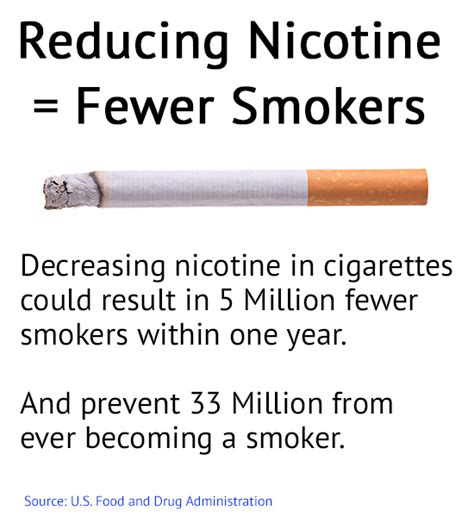—
US FDA Pushes for Reduced-Nicotine Cigarettes to Aid Smokers
In a bid to combat smoking addiction, the U.S. Food and Drug Administration has proposed a groundbreaking rule that aims to reduce the nicotine content in cigarettes and certain tobacco products. By limiting the addictive chemical in these items, the FDA hopes to provide smokers with a pathway to break free from their detrimental habit.
This initiative signifies a significant shift towards promoting public health and reducing the prevalence of smoking-related illnesses. While the implementation of this regulation may take time due to potential legal challenges from the tobacco industry, its potential impact on smokers cannot be overstated.
—
The Science Behind Reduced-Nicotine Cigarettes
Nicotine, known for its highly addictive nature, is the main driver behind continued smoking habits. However, it is crucial to understand that while nicotine provides the buzz that users seek, it is other harmful chemicals in cigarette smoke that pose serious health risks.
Reduced-nicotine cigarettes contain significantly lower levels of nicotine compared to traditional cigarettes. Studies have shown promising results, indicating that individuals using these products tend to smoke fewer cigarettes per day and exhibit reduced nicotine dependence over time.
—
Expert Insights on Smoking Cessation Challenges
Dr. Megan Piper from the University of Wisconsin Center for Tobacco Research emphasizes how withdrawal symptoms can make quitting smoking an arduous journey. Symptoms such as anxiety, irritability, and difficulty sleeping can deter individuals from breaking free from their addiction.
Behavioral scientist Jennifer Tidey highlights how reduced-nicotine cigarettes offer a unique approach by allowing smokers to maintain familiar habits associated with smoking while gradually decreasing their nicotine intake. This method can empower individuals by demonstrating control over their smoking behavior.
—
Personal Experiences with Reduced-Nicotine Cigarettes
Participants in studies exploring reduced-nicotine cigarettes have reported feeling less dependent on traditional cigarettes and more motivated to quit altogether after using low-nicotine alternatives. These firsthand testimonies underscore the potential effectiveness of reduced-nicotine products in aiding smoking cessation efforts.
The transitional phase from high-nicotine cigarettes to reduced-nicotine options serves as a pivotal moment for many smokers as they begin envisioning a future free from tobacco dependency. The psychological shift towards feeling liberated from cigarette control can inspire individuals on their path towards complete cessation.
—
By offering diverse cessation methods such as reduced-nicotine products alongside existing strategies like nicotine replacement therapies and noncombusted tobacco alternatives, individuals have access to comprehensive support systems tailored to their preferences and needs during their quitting journey.
Remember, quitting smoking is a challenging process that often requires multiple attempts. Each step taken towards reducing cigarette consumption brings you closer to achieving your goal of living smoke-free.




Leave feedback about this